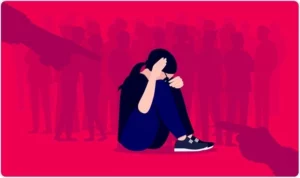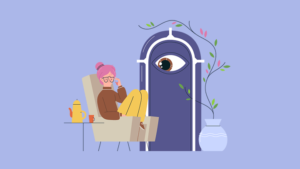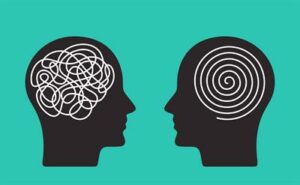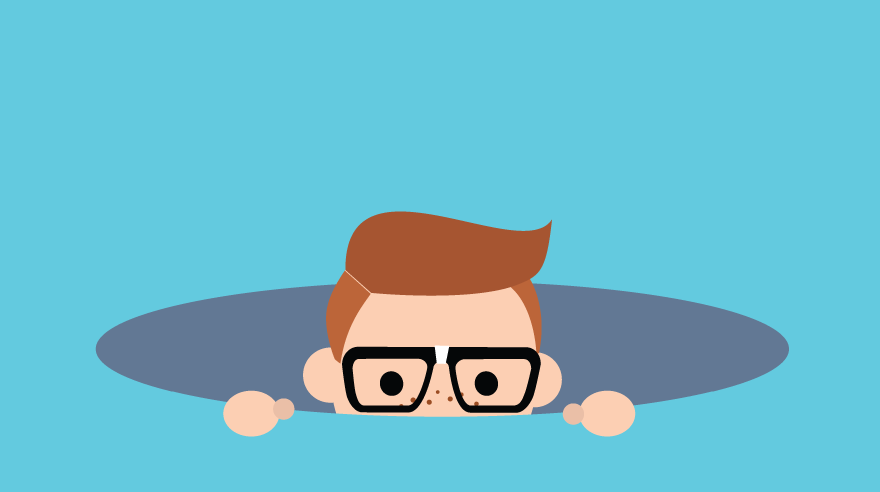Do you constantly worry about what others think of you? Do you feel like you need to be perfect in order to fit in? If so, you may be suffering from social OCD. This little-known disorder can ruin lives, but it is often mistaken for regular old OCD. In this blog post, we will discuss social OCD and the signs that you may be suffering from it. We will also provide tips on how to get help if you think you may have this disorder.
Contents
Defining Social OCD

Obsessive-Compulsive Disorder, or so known as OCD, is a mental disorder in which people have unreasonable thoughts and fears (obsessions) that lead them to do repetitive behaviors (compulsions). Although OCD is commonly known as a disorder that causes people to obsessively wash their hands or organize their belongings, it can also manifest itself in various other forms. One of them is social OCD.
Social OCD is a subtype of OCD in which the sufferer has intense anxiety and fear surrounding social situations. They may worry about being embarrassed, judged, or rejected by others. As a result, they may avoid social interactions altogether or they may go to great lengths to try to control them. For example, someone with social OCD may avoid going to parties or they may spend hours getting ready for a simple coffee date.
It is important to note that social OCD is different from shyness. Shyness is a normal part of life and does not necessarily interfere with one’s ability to function in day-to-day activities. While people with social OCD often go to great lengths to hide their disorder from others. This can make it difficult to spot the presence of the disorder.
How Is It Different From Other Disorders?
Social OCD can be difficult to diagnose because it shares many symptoms with other disorders, such as social anxiety disorder and avoidant personality disorder.
One of the main ways to differentiate social OCD from other disorders is the presence of compulsions. People with social OCD will often have repetitive behaviors or mental rituals that they feel they need to do in order to ease their anxiety. For example, someone with social OCD may need to check their appearance several times before leaving the house or they may need to rehearse what they are going to say in a conversation over and over again.
People with social anxiety disorder or avoidant personality disorder may also have some of these compulsions, but they will not be as severe or time-consuming as they are for someone with social OCD. Additionally, the compulsions experienced by people with social OCD are often done in secrecy and are not generally known by others.
Moreover, people with social OCD will often recognize that their thoughts and behaviors are irrational, but they will be unable to control them. On the other hand, people with social anxiety disorder or avoidant personality disorder may not realize that their thoughts and behaviors are irrational.
It is important to remember these differences to get the correct diagnosis and treatment.
Signs And Symptoms
 As we are already aware, OCD as a disorder has two components: obsessions and compulsions. We will now understand how these may manifest within someone who has this disorder.
As we are already aware, OCD as a disorder has two components: obsessions and compulsions. We will now understand how these may manifest within someone who has this disorder.
- Obsessions
-Intrusive, unwanted, and often disturbing thoughts or images that repeatedly pop into your head
-An intense fear of being embarrassed or humiliated in social situations
-A need to be perfect or to have everything in order
-Facing anxiety or distress when your routine is disrupted
-The feeling that you cannot control your thoughts
- Compulsions
-Avoidance of social situations
-Excessive grooming or changing clothes
-Excessively self-critical
-Repeatedly checking your appearance
-Spending a lot of time on social media to research others or to compare yourself to them
-Mental rituals such as repeatedly going over conversations in your head
While these may seem regular and something everyone experiences, people with social OCD may experience them to an extreme that significantly interferes with their daily life.
Causes
A disorder as complex as OCD doesn’t have one specific cause. Rather, it is likely a combination of different factors:
- Genetics: OCD has been shown to run in families, so it is likely that there is a genetic component. This can be due to a combination of genetic and environmental factors.
- Brain structure and function: There are differences in the brains of people with OCD compared to those without the disorder.
- Family history of mental illness: Having a parent or other close family member with OCD or another mental illness may increase the risk.
- Trauma: Experiencing trauma, such as abuse, can trigger OCD symptoms. This is because the brain may associate certain triggers with the feeling of anxiety or fear.
- Stress: Stress can be one of the major precipitants of OCD. Due to the pandemic, many people have experienced significant stress and anxiety, which may have triggered OCD symptoms or worsened existing ones.
- Personality traits: Lastly, some personality traits, such as perfectionism, low self-esteem or rigidity, may make someone more susceptible to developing OCD.
It is important to note that OCD is not caused by one specific thing. Rather, it is a combination of different factors. It is also worthy to note that not everyone who has these risk factors will develop OCD.
Consequences
The after-effects of social OCD are often much more far-reaching than people realize. It can cause problems in all areas of life, including:

- Family life: Social OCD can put a strain on relationships. The constant need for perfection and fear of embarrassment can make it difficult to be open and honest with loved ones. Additionally, the secrecy and shame associated with the disorder can make it hard to form and maintain close relationships.
- Work life: Social OCD can also affect work life. The fear of embarrassment and the need for perfection can make it difficult to perform well in social situations, such as meetings or presentations. Additionally, the avoidance of social situations can make it hard to advance in your career.
- Academic life: Social OCD can also have an impact on academic life. The avoidance of social situations can make it hard to participate in a class or do group work. Additionally, the need for perfection can lead to problems with procrastination and completing assignments.
- Physical effects: Social OCD can also take a toll on physical health. The constant anxiety and stress can lead to problems such as insomnia, headaches, and stomach issues. Additionally, the avoidance of social situations can lead to isolation and loneliness, which can further exacerbate physical health problems.
- Emotional effects: Lastly, social OCD can also have a significant impact on mental health. The constant anxiety and stress can lead to problems such as depression, anxiety, and eating disorders. Additionally, the secrecy and shame associated with the disorder can make it hard to seek help from a mental health professional.
Overall, the condition can have a significant impact on all areas of life. If you or someone you know is struggling with social OCD, do seek professional help.
Ways To Deal
If you think that you might have social OCD, it is important to seek professional help. A mental health professional can assess whether your symptoms meet the criteria for a diagnosis and can provide you with effective treatment. You can either seek assistance from a mental health professional, like a therapist, or a psychiatrist. Moreover, you may also adapt to self-help strategies to ease and manage your symptoms.
Professional Help
Professional help from a psychologist or psychiatrist is the most effective way to treat social OCD. A mental health professional can provide you with Cognitive-Behavioral Therapy (CBT), which is an effective treatment for OCD.
- Cognitive Behavioral Therapy (CBT) involves learning to identify and challenge negative thoughts, as well as exposure and response prevention (ERP), which is a form of exposure therapy.
- Exposure and Reaction Prevention Therapy (ERP) involves facing your fears in a controlled and safe environment so that you can learn to manage your anxiety. It works by gradually exposing you to the things you fear and avoiding any compulsions or safety behaviors.
- Acceptance and Commitment Therapy (ACT) is another effective treatment for OCD. ACT works by teaching you to accept your thoughts and feelings without trying to change them. It also involves learning to focus on what is important to you and taking action toward your goals.
- Psychodynamic psychotherapy is another form of professional help that can be effective for treating OCD. It works by exploring the unconscious mind and understanding the root cause of your symptoms.
- Medication: medication can also be an effective treatment for social OCD. The most commonly prescribed medications for OCD are antidepressants, such as selective serotonin reuptake inhibitors (SSRIs).
If you are struggling with social OCD, please seek professional help. The sooner you seek treatment, the sooner you can start living a happy and fulfilling life
Self-Help Tips
Self-help can be a valuable addition to professional treatment. There are a number of things you can do on your own to ease your symptoms and manage your OCD. Some self-help tips for social OCD include:

- Identifying your triggers: make a list of the situations that trigger your anxiety so that you can avoid them or be prepared for them.
- Challenging your negative thoughts: when you have a negative thought, take a step back and analyze it. Ask yourself whether it is true or realistic.
- Practicing relaxation techniques: relaxation techniques such as deep breathing can help you to manage your anxiety.
- Exposing yourself to social situations: gradually expose yourself to the situations that you fear. Start with small steps and work your way up.
- Avoiding safety behaviors: safety behaviors, such as avoiding eye contact or always carrying a safe place, can actually make your anxiety worse. Trying to not do so will help you to confront your fears.
- Seeking support: Having the right support can make a big difference. Join a support group or talk to a friend or family member about your anxiety. They will be able to offer you practical and emotional support.
There are many things you can do to ease your symptoms. If you think you might have social OCD, please seek professional help. A mental health professional can provide you with an accurate diagnosis and effective treatment. With the right treatment, you can start living the life you deserve.
Conclusion
To conclude the above, social OCD is a hidden disorder that can ruin lives. It can cause immense anxiety and distress. However, there are treatments available that can help you to manage your symptoms and live a happy and fulfilling life. Obsessive-compulsive disorder does not have to control your life. You can get help and you can get better.
If you or someone you know is struggling with OCD, please reach out to Therapy Mantra for help. We have a team of highly qualified mental health professionals who can provide you with the treatment and support you need. Contact us today to book an online therapy session or download our free OCD treatment app on Android or iOS for more information.


